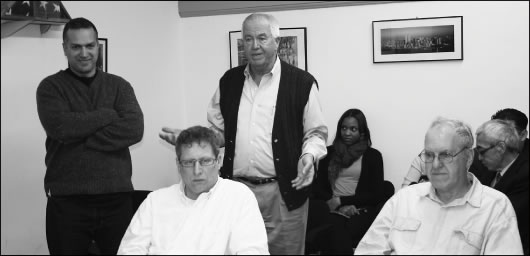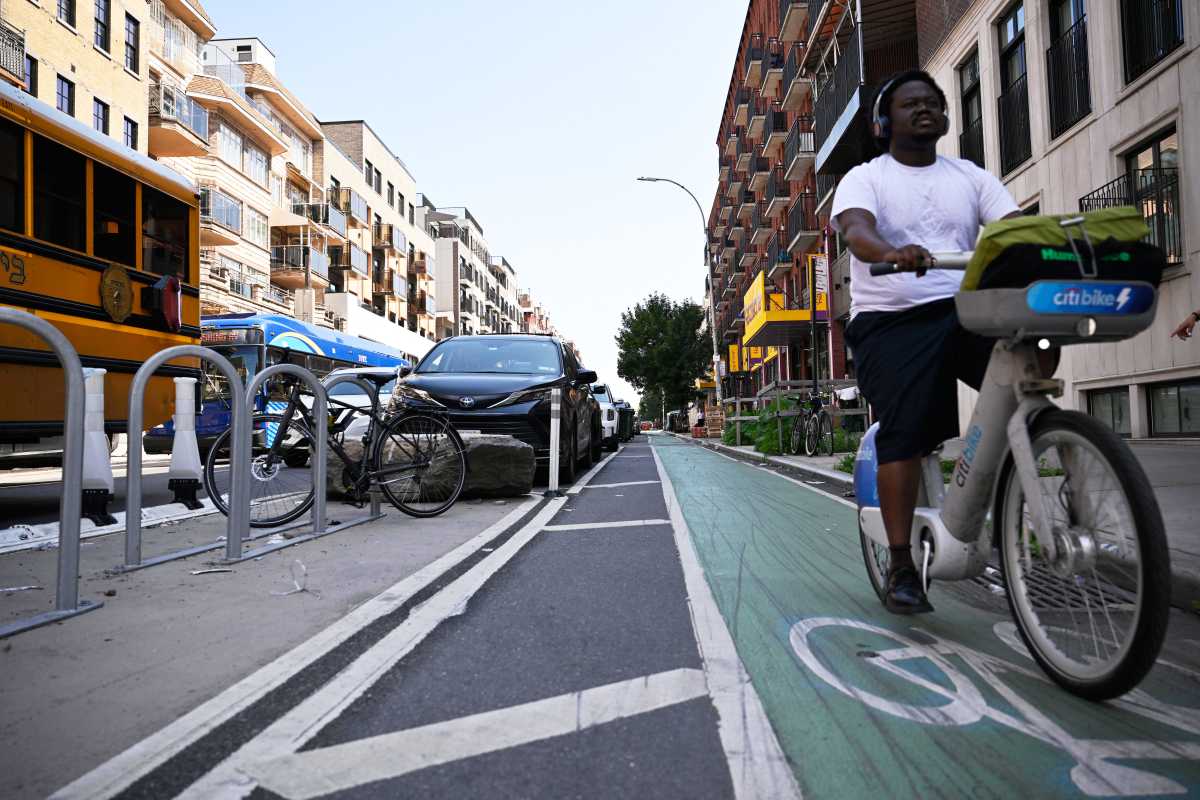BY Aline Reynolds
Water Taxi Beach in the South Street Seaport might soon become a vibrant hangout spot for those looking to have a beer, schmooze with friends and play ping-pong along the water.
Tom Fox, president of New York Water Taxi, plans to hire Tribeca resident and entrepreneur Telly Hatzigeorgiou to transform the beach into an upscale beer garden, complete with 50 tables, landscaping, foosball tables and other amenities.
Renovations to the space will start in May, according to Hatzigeorgiou.
“Quite frankly, [the beach] doesn’t work as a business model as it is,” since it is not generating enough revenue to keep it open seven days per week, according to Fox. He and Hatzigeorgiou presented the plans to the Community Board 1 Seaport-Civic Center Committee on Monday evening.
Fox said the Howard Hughes Corporation, the current owner of the Seaport, could turn the space back into a parking lot were he forced to prematurely terminate his lease, which doesn’t expire until 2014.
“I realize I’m a very good waterfront advocate, but I’m not that good at running restaurants,” said Fox. “This business can make it a vital space that’s of use to the community.”
Hatzigeorgiou plans to host private events at the new venue, such as weddings and corporate social functions. He has already booked two weddings.
“It’s a huge improvement cosmetically,” said Hatzigeorgiou, who plans to make the space an attractive and appealing destination for an “older, more mature crowd.”
“Part of the whole concept is to have picnic tables spread out around the whole place, so it’s more social,” said Hatzigeorgiou. The intention, he explained, is to move away from the night club atmosphere the space was beginning to develop last year, when Fox hosted several live music concerts.
The Seaport Committee, however, had major qualms with the proposal – six members voted in favor of a motion to oppose the plan unless it includes space open to the public at large. Committee members recommended that alcohol stop being served at 3 a.m., rather than 4 a.m., as proposed by Hatzigeorgiou.
“I have a real problem with losing this [public] amenity for the community,” said Committee Chair John Fratta. He and other committee members suggested placing restrictions on playing music to midnight on weekdays and 1 a.m. on weekends, were the proposal to go through, to help maintain nearby residents’ quality of life.
“There has to be a balance between the needs of the community and the business,” said Fratta. “We don’t want another headache in the Seaport.”
Hatzigeorgiou replied by saying he would be willing to open the picnic tables to the public at large during times when there is a low demand for patron seating. Access to the north side of Pier 17, he assured, would remain free of charge.
Hatzigeorgiou didn’t agree, however, to the music limit proposed by the committee. “I don’t know at this point what time the music would be going to,” he said. “It’s not going to be blasting, that’s for certain.”
Committee member Paul Hovitz echoed that he would be opposed to losing the area as free, public space. “I would rather see this given back to [the Howard Hughes Corporation] and have [the company] operate it as open space, the way it was originally before there was a beach there,” he said.
Michael Piazzola, senior general manager at Howard Hughes, replied by saying that the real estate company is not in the business of managing public spaces.
“We think this is the right operation for that location,” he said, contending that it would be a good substitute for the asphalt-brick parking lot that existed there prior to the beach in 2009.
Piazzola didn’t provide a detailed update of Howard Hughes’ plans for the Seaport, but said company is scouting out new restauranteurs, retailers and promoters who will attract more visitors to the area.
Others present at the committee meeting voiced their support for the project. Committee member Corie Sharples pointed out that the beach often got “sad, neglected and dirty.”
“If it’s going to be used,” she said, “I’d rather see a business that’s got its eyes on the street, cleaning and maintaining it.”
“Anytime you have an opportunity to change the public conception of the Seaport, take the space, and turn it into somewhere not only New Yorkers but the community wants to go to, is a great thing,” said Stephen Dima, owner and president of an event production company in the South Street Seaport.


































